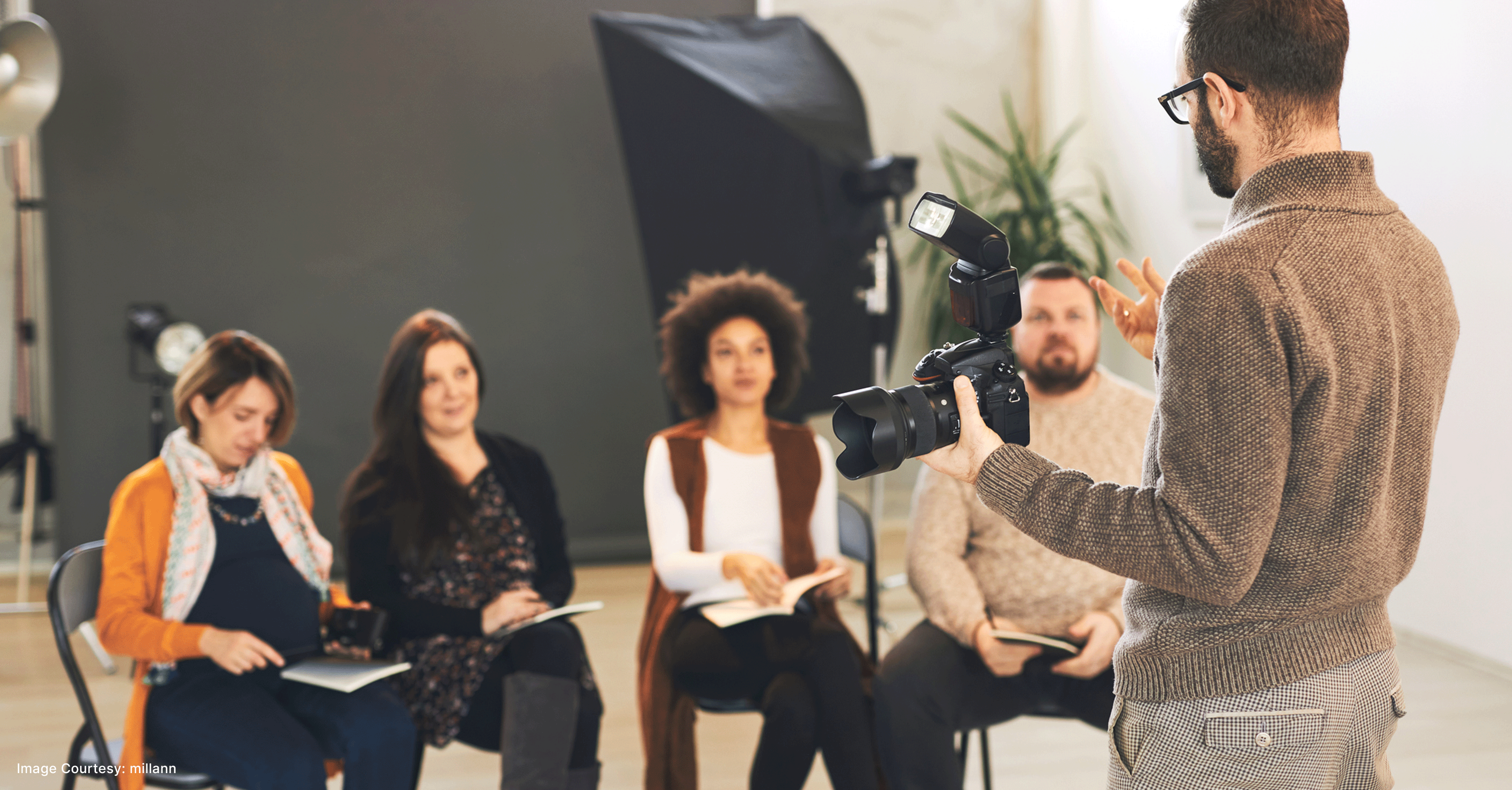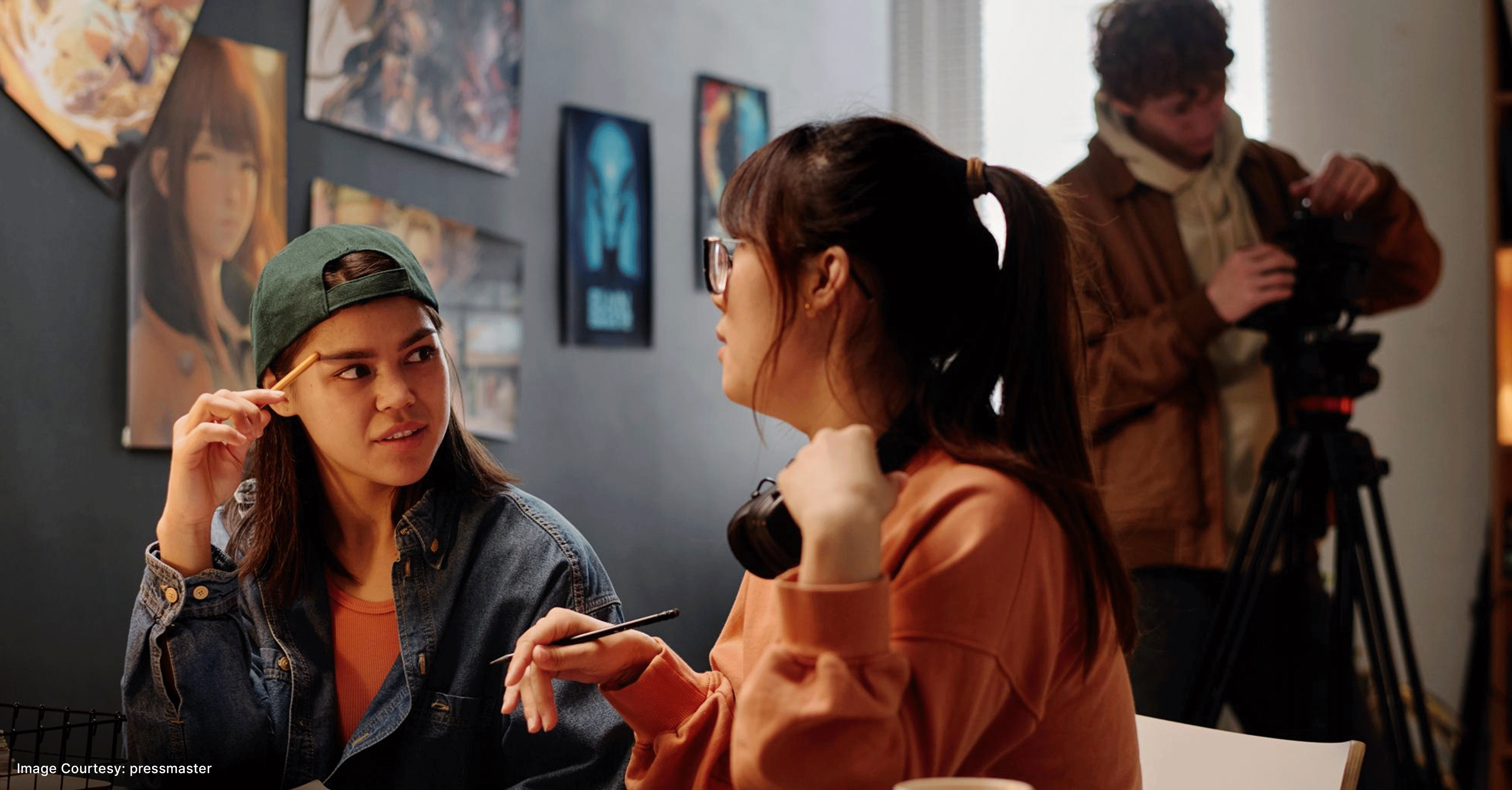In today’s fast-paced digital age, photography has become more accessible than ever before. With the rise of smartphones, social media platforms, and digital cameras, virtually anyone can capture and share images with the world. This accessibility has democratized photography, allowing people from all walks of life to express their creativity and document their experiences. However, while taking a photo has become simpler, mastering the art of photography still requires a deep understanding of technical skills, creative vision, and visual storytelling. This is where formal and informal photography education comes into play.
In this blog, we will explore why photography education is more important than ever in the age of digital media and smartphones. We’ll also highlight how formal education can help photographers hone their skills, how informal learning opportunities provide flexibility, and how organizations like ZiiP Foundation are contributing to the future of photography education.
Photography in the Age of Digital Media and Smartphones
The advent of smartphones and digital media has fundamentally transformed the landscape of photography. According to statistics, 1.43 trillion photos were taken globally in 2020, with a significant portion of these images captured by smartphones. Social media platforms such as Instagram, Facebook, and TikTok have provided instant platforms for sharing, viewing, and interacting with photography. As a result, we are constantly exposed to a massive volume of images every day.
Despite the ubiquity of digital photography, there remains a significant distinction between taking a photo and mastering photography as an art form. Professional photographers understand that photography goes beyond simply pointing and shooting; it requires knowledge of composition, lighting, exposure, and post-processing. This distinction highlights the need for both formal and informal photography education, which can teach aspiring photographers the techniques and principles required to create impactful and meaningful images.
The Role of Formal Photography Education
Formal photography education is often delivered through structured courses, workshops, and degree programs at universities or specialized institutions. These programs provide students with a comprehensive understanding of the technical and creative aspects of photography. Formal education equips photographers with the knowledge they need to excel in the field, whether as visual artists, commercial photographers, or photojournalists.
1. Technical Skills
Formal education teaches aspiring photographers the technical skills they need to operate advanced camera equipment and editing software. Topics such as understanding camera settings (ISO, shutter speed, aperture), lighting techniques, and post-processing are essential for photographers who want to create professional-quality images.
For example, students in photography degree programs often receive hands-on experience with a wide range of equipment, from high-end DSLR and mirrorless cameras to studio lighting setups. This technical training helps photographers create images that are sharp, well-composed, and visually striking.
2. Creative Vision and Artistic Expression
Beyond technical skills, formal photography education helps photographers develop their creative vision. Photography is an art form, and successful photographers need to understand how to convey a message or evoke emotion through their images. Formal education exposes students to the history of photography, art theory, and the works of influential photographers, which can help them develop a unique style.
By studying photography in an academic setting, students gain the ability to critique their own work and that of others, which is crucial for growth and development as an artist. Additionally, being in a structured learning environment allows photographers to experiment with different styles, genres, and techniques under the guidance of experienced mentors.
3. Networking and Professional Development
Formal education also provides opportunities for networking and professional development. Photography programs often connect students with industry professionals through guest lectures, internships, and exhibitions. These connections can be invaluable for photographers who want to build a career in the field, as they provide access to mentorship, job opportunities, and industry insights.
Furthermore, many photography schools and programs offer opportunities for students to showcase their work in exhibitions, competitions, or galleries, allowing them to gain exposure and recognition within the photography community.
The Role of Informal Photography Education
In contrast to formal education, informal photography education refers to learning opportunities outside of traditional academic institutions. These can include online courses, YouTube tutorials, photography blogs, workshops, and self-directed learning. Informal education has gained popularity in recent years, particularly with the rise of e-learning platforms and the growing availability of free educational resources.
1. Flexibility and Accessibility
One of the biggest advantages of informal photography education is its flexibility. Photographers can learn at their own pace, without the constraints of a formal academic calendar. This is particularly beneficial for individuals who may not have the time or financial resources to enroll in full-time degree programs but still want to improve their skills.
Online photography courses and tutorials offer a wealth of knowledge, covering topics such as landscape photography, portraiture, editing techniques, and more. Platforms like Udemy, Coursera, and Skillshare provide affordable courses taught by experienced photographers, making it easier for individuals to access high-quality education from the comfort of their homes.
2. Hands-On Learning and Experimentation
Informal education often encourages a hands-on approach to learning. Aspiring photographers can apply the concepts they learn immediately by experimenting with their cameras, trying out different techniques, and practicing in real-world scenarios. Whether they are learning how to capture street photography or mastering the art of long-exposure shots, informal education allows photographers to practice and refine their skills through trial and error.
Workshops and short-term courses also provide photographers with the opportunity to engage in hands-on learning, often in immersive environments. For example, travel photography workshops that take place in scenic locations give participants the chance to practice capturing landscapes and wildlife under the guidance of experienced photographers.
3. Community and Peer Learning
Another significant benefit of informal education is the sense of community it fosters. Many online platforms have dedicated photography communities where photographers can share their work, receive feedback, and participate in challenges or competitions. These communities provide a space for continuous learning and inspiration, allowing photographers to grow alongside their peers.
Websites like 500px, Flickr, and Instagram have thriving photography communities where photographers can connect, collaborate, and learn from one another. Engaging with these communities can provide valuable insights and exposure to different perspectives and techniques.
The Importance of Photography Education in the Digital Era
In today’s digital world, photography education—both formal and informal—remains crucial for several reasons:
1. Understanding the Fundamentals
While anyone with a smartphone can take a photo, understanding the fundamentals of photography is essential for creating impactful and professional-quality images. Formal education teaches photographers the basics of exposure, composition, color theory, and lighting, which are crucial for controlling the final outcome of an image.
For example, understanding how aperture affects depth of field or how to use lighting to create mood can make a significant difference in the quality of a photograph. While modern smartphones come with sophisticated AI-driven features, having a solid foundation in photography allows photographers to go beyond automated settings and take creative control of their images.
2. Navigating the Digital Workflow
In the digital age, photography is not just about capturing images; it also involves managing a digital workflow. Post-processing, archiving, and sharing images require a solid understanding of software such as Adobe Photoshop, Lightroom, and Capture One. Formal photography education often includes training on these tools, helping photographers develop a streamlined workflow from shooting to editing.
Additionally, photographers need to be aware of issues like copyright, digital asset management, and ethical considerations when sharing images online. This is especially important in a world where visual content is consumed at an unprecedented rate on platforms like Instagram, Pinterest, and YouTube.
3. Staying Competitive in the Industry
As photography continues to evolve with advancements in technology, photographers need to stay up-to-date with the latest trends and tools to remain competitive. Photography education provides the framework for continuous learning and adaptation, ensuring that photographers can keep pace with new developments such as drone photography, augmented reality, and 360-degree imaging.
For aspiring photographers aiming to turn their passion into a profession, staying competitive in the industry requires both technical proficiency and business acumen. Many formal photography programs include modules on business management, marketing, and branding, which are essential skills for freelance photographers in the gig economy.
ZiiP Foundation’s Role in Photography Education
ZiiP Foundation is poised to play a significant role in photography education, bridging the gap between formal and informal learning through its innovative programs and initiatives. As a platform dedicated to fostering creativity and cultural exchange, ZiiP Foundation recognizes the importance of providing aspiring photographers with access to education that is both comprehensive and flexible.
1. Workshops and Masterclasses
ZiiP Foundation’s photography workshops and masterclasses will provide hands-on learning experiences, taught by industry experts. These programs will cover both technical skills and creative storytelling, ensuring that participants develop a well-rounded understanding of photography. The workshops will also focus on specific genres, such as documentary photography, portraiture, and visual storytelling.
By offering workshops in various locations around the world, ZiiP Foundation will provide aspiring photographers with the opportunity to learn in diverse cultural and environmental settings, enriching their creative perspectives.
2. Mentorship and Networking
ZiiP Foundation’s mentorship programs will connect emerging photographers with experienced mentors who can provide personalized feedback, career guidance, and support. These mentorships will be invaluable for photographers who want to develop their portfolios, refine their artistic vision, and build connections within the photography industry.
Through exhibitions, collaborative projects, and networking events, ZiiP Foundation will create opportunities for photographers to showcase their work and gain exposure, helping them build a successful career in photography.
3. Access to Online Learning Resources
ZiiP Foundation recognizes the importance of accessibility in education, particularly in the digital age. To ensure that aspiring photographers from all backgrounds can access quality education, the foundation will offer a range of online resources, including video tutorials, webinars, and e-learning courses. These resources will cover fundamental photography techniques, creative storytelling, and advanced editing tools, allowing participants to learn atZiiP Foundation recognizes the importance of accessibility in education, particularly in the digital age. To ensure that aspiring photographers from all backgrounds can access quality education, the foundation will offer a range of online resources, including video tutorials, webinars, and e-learning courses. These resources will cover fundamental photography techniques, creative storytelling, and advanced editing tools, allowing participants to learn at their own pace from anywhere in the world.
Through its commitment to providing both formal workshops and accessible online learning opportunities, ZiiP Foundation is poised to become a key player in the world of photography education. By offering a blend of hands-on, in-person experiences and flexible digital resources, ZiiP will ensure that photographers of all skill levels have the tools they need to thrive in today’s digital photography landscape.
Conclusion
In today’s digital world, photography education remains essential for anyone serious about mastering the art of photography. While smartphones and digital cameras have made photography more accessible, formal and informal education is still crucial for learning the technical skills, creative vision, and storytelling techniques required to create meaningful and impactful images.
Whether through structured degree programs, online tutorials, or hands-on workshops, photography education provides aspiring photographers with the knowledge, resources, and networks they need to succeed in an increasingly competitive field. ZiiP Foundation’s upcoming contributions to photography education will help foster a new generation of photographers, equipping them with the skills and tools needed to excel in the digital age while continuing to elevate photography as a powerful medium for storytelling and cultural exchange.




